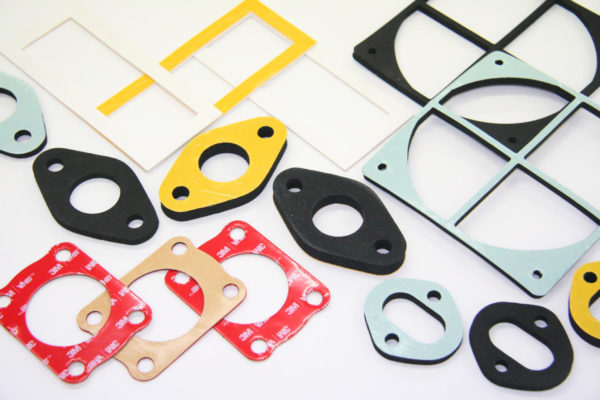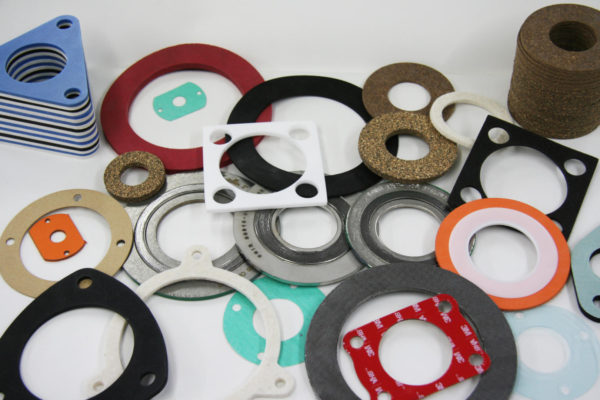Ball Valves: Versatile Fluid Control Solutions
Industrial Seals: Ensuring Precision and Reliability
Ball Valves: Versatile Fluid Control Solutions
Introduction to Ball Valves:
Ball valves are essential components utilized across various industries to provide versatile and efficient control over the flow of fluids. These valves derive their name from the spherical-shaped closure element, often referred to as the “ball,” which controls fluid flow by rotating within the valve body. In this comprehensive guide, we delve into the intricate design, functionality, extensive applications, and the manifold advantages offered by ball valves.
Design and Operational Mechanism:
Valve Components: Ball valves consist of three key components: the valve body, the ball with a bored center, and an actuator. The valve body, typically constructed from materials such as stainless steel, brass, PVC, or carbon steel, is chosen based on specific application requirements.
Bore Variations: The spherical ball inside the valve possesses a bore through its center, which can either be a full bore or a reduced bore design. A full bore ball valve has a hole that matches the pipe’s size, ensuring minimal pressure drop. Conversely, a reduced bore valve features a smaller hole, sacrificing flow capacity for space constraints.
Quarter-Turn Operation: Ball valves operate on the principle of a quarter-turn. When the handle or actuator is rotated by 90 degrees, the ball within the valve body either aligns its bore with the pipe, permitting fluid flow (open position), or positions it perpendicular to the pipe, blocking the flow (closed position). This elegant yet highly effective mechanism offers swift and dependable control over fluid flow.
Diverse Applications:
Ball valves, renowned for their versatility and reliability, are deployed across a multitude of industries for various applications, including:
1. Oil and Gas:**
- Wellhead Control: Ball valves play a pivotal role in controlling wellhead operations.
- Pipeline Isolation: They ensure the seamless isolation of pipelines for maintenance and safety.
- Process Control: Invaluable for regulating flow within complex processing systems.
2. Chemical and Petrochemical:
- Corrosive Media Handling: Resistant to chemical attacks, ball valves are suitable for managing corrosive chemicals and aggressive media.
3. Water and Wastewater Treatment:
- Fluid Management: These valves are employed in treatment plants and distribution systems for fluid control, ensuring efficient water and wastewater treatment processes.
4. HVAC Systems:
- Temperature Control: Used to regulate the flow of water or refrigerant in heating, ventilation, and air conditioning systems.
5. Food and Beverage:
- Sanitary Handling: Ball valves are ideal for applications requiring sanitary handling, such as dairy processing, breweries, and wineries.
6. Pharmaceutical:
- Precision Control: Widely used in the pharmaceutical industry to achieve precise control in various manufacturing processes.
7. Automotive:
- Fluid Control: Applied in engine cooling systems and transmission fluid control within the automotive sector.
8. Marine and Offshore:
- Corrosion Resistance: Their resistance to corrosion makes them suitable for marine applications and offshore platforms.
Advantages of Ball Valves:
Ball valves offer several distinct advantages that position them as a preferred choice in numerous applications:
1. Swift Operation:
- Rapidly respond to changing process conditions with a 90-degree turn for quick on/off control.
2. Durability:
- Robust construction enables them to withstand high pressures and temperatures, making them suitable for demanding environments.
3. Reliable Sealing:
- Form a tight seal when closed, minimizing leakage and ensuring system integrity.
4. Minimal Maintenance:
- Simple design reduces the need for frequent maintenance and repairs.
5. Versatility:
- Available in diverse materials, sizes, and configurations, making them adaptable to a wide range of applications.
6. Bi-Directional Flow Control:
- Ball valves effectively control flow in both directions, simplifying installation and minimizing the risk of improper orientation.
In conclusion, ball valves represent indispensable components across a multitude of industries, offering efficient and precise control over fluid flow. Their robust construction, swift operation, and dependable performance make them a cornerstone in fluid handling systems, ensuring the efficient operation of various processes.



We believe in going the extra mile. Our commitment to quality extends to crafting custom products designed to suit specific designs and material specifications. This commitment empowers us to tackle unique challenges head-on and find solutions that truly fit.
